By this fall, and after only three years, 10 new innovative Jewish elementary schools will have opened in communities around the nation, a harbinger of a brighter future for Jewish education in the 21st century. All part of the Tamim Academy Network, the first four Tamim Academies opened in the fall of 2020 in Burlington, Vt.; Boca Raton, Fla.; Manhattan’s Upper West Side; and Greenwich, Conn. In 2021, two more opened in Salt Lake City and Austin, Texas, respectively, and this fall of 2022 welcomed new schools in Cambridge, Mass.; Miami; Toronto; and the Queens borough of New York City.
The first cohort launched at the height of the uncertainty surrounding school reopenings due to the coronavirus pandemic. Each school started with a kindergarten or a K-1 and will add a grade or two annually through eighth grade.
The opening of the Chabad-Lubavitch-run schools comes on the heels of a long, historic decline in Jewish day-school enrollment among schools that fall outside of what researchers call the Orthodox sector.
According to a census of Jewish day schools in North America from 2018-2019 conducted by the Avichai Foundation, while the Orthodox sector has grown significantly, enrollment in non-Orthodox schools went from 37,000 in 1998 to 33,835 in 2013-14 and finally to 30,756 in 2018–2019 representing a 16.6% decline in enrollment over 20 years and a 9% decline between 2014-2019 alone.
While some speculated that Covid would only darken this gloomy picture, the past two years have actually proven brighter, with more families choosing Jewish day-school education for their children. For the first time in decades, a number of Jewish schools registered increases in enrollment. Parents say they are drawn to the smaller class sizes, the distinct feeling of community and personalized learning these schools offer, and the smoother transition to and from online schooling that took place during lockdowns. While the community can only hope that this turns into a long-term trend reversal and an increase in demand for Jewish schooling, there is certainly a need to permanently reverse the decades-long trend of the majority of Jewish families having little or no interest in sending their children to Jewish day school. This makes Tamim Academy’s arrival on the Jewish educational scene all the more vital.
Robin and David Maza were among the pioneers who enrolled their children in Tamim Academy of Vermont, the first Jewish primary school ever to open in the rural state’s history. The Mazas had lived on New York’s Long Island for several years with their young son, Bear. While they knew that they wanted to leave the New York City metropolitan area, with their son’s enrollment in elementary school approaching, they weren’t sure where they would find a Jewish community that offered the kind of schooling they desired for their son.
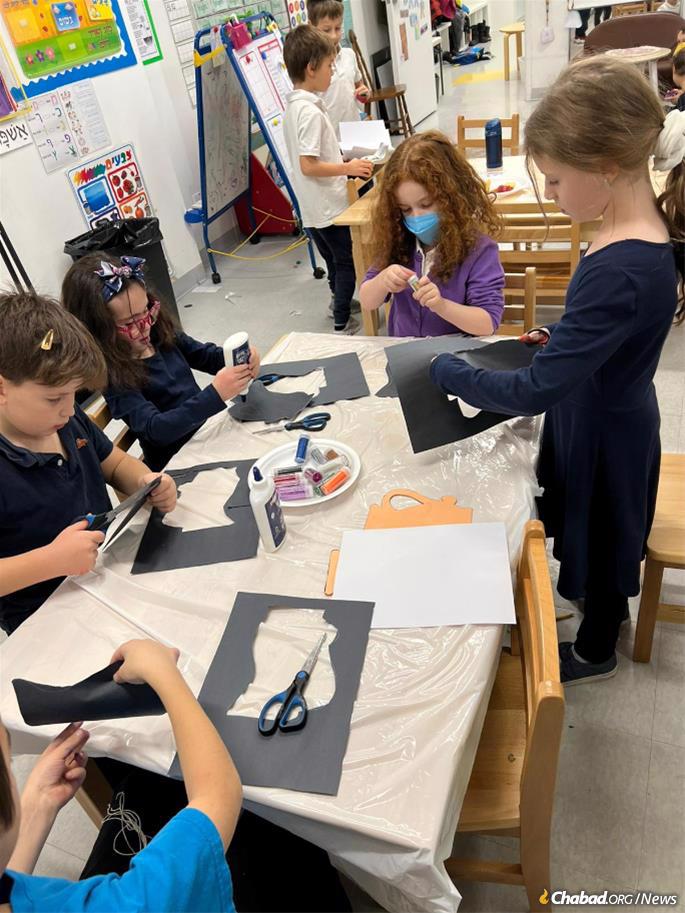
“Whenever we considered moving, our thoughts were guided by the questions: ‘Is there a Jewish community? Is there a Jewish school?’ ” said Robin Maza, who, like her husband, had the benefit of a Jewish day-school education growing up.
When the couple heard that Tamim Academy was opening in Burlington and would have a child-centered approach, they immediately knew they had found their new home town.
“My husband and I needed no deliberation,” said Maza. “It was just, ‘Where do we sign up?’ ” And that’s just what they did, relocating to the small New England city in time for the start of the 2020 school year. Bear, now 7, was one of 14 students in the school’s inaugural K-1 class and is currently thriving in his third year at Tamim Academy of Vermont.
“We are really happy with Tamim. We are very appreciative of the out-of-the-box approach to education, which is important to our family. There is no Jewish day school out there that would be better-suited for us and our son than the Tamim here in Vermont,” she said.
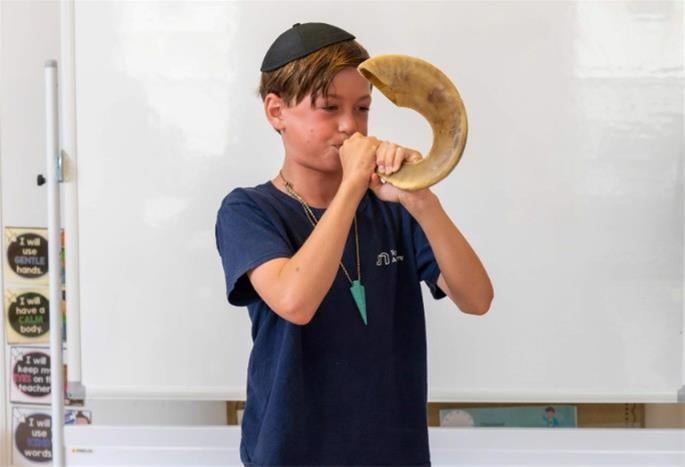
The rigorous curriculum that so appealed to the Mazas was written for and implemented at every Tamim Academy. It promotes individualized learning, and a focus on developing not only a child’s social and emotional dexterity but also their spiritual connection and health. In Vermont, it even includes a weekly trip to a local farm where the students help make apple cider, shear sheep and learn about the local farming life.
“The guiding principle of our school is chanoch lanaar al pi darko—‘educating each child in their own way.’ When you take a class of 20 children and teach them all the same way, they won’t maximize their potential,” said Draizy Junik, executive director of Tamim in Vermont. “Every child is created differently, and it is the job of the educator to help children figure out how they learn best and tap into their unique educational pathway.”
“The Rebbe [Rabbi Menachem M. Schneerson, of righteous memory,] took children very, very seriously,” explained Vivi Deren, a veteran Chabad emissary and educator who serves as an advisor at Tamim Academy. “Here was this leader of the Jewish people who spent an inordinate amount of time speaking to children. There was always an explicit message as well as an implicit one: We must place our children front and center, and it is our job and mission to do whatever we can to reach each child at their level.”
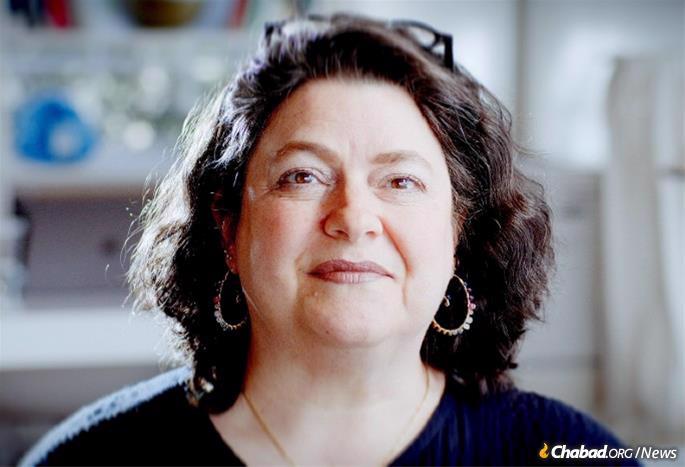
‘A Match Made in Heaven’
The Tamim Academy model is unique in that while each Tamim Academy school is independently run, key points of operation are networked in the form of a single headquarters that focuses on curriculum design and ongoing teacher training, administrative support and business model coaching. In centralizing these and other typical school functions, Tamim expects to bypass many of the challenges of building and running a school while reducing costs and elevating quality and consistency.
“Today, this is one of the things that is critically important in education and something no one seems to be able to crack,” explained Tamim Academy’s chief impact officer, Bryna Lieder. A seasoned educator, Leider understands what appeals to 21st-century parents. The daughter of Chabad emissaries herself, she has extensive experience and a keen understanding of the challenges they face when embarking on ambitious institutional projects, like starting a school, and has the desire and skill to address those challenges. “We can keep costs down and raise the quality of the education by centralizing certain processes, all of which helps school leaders feel less alone,” she said.
Indeed, Jewish communities, especially smaller ones, have in recent years seen their day schools struggle or even close their doors for good. By utilizing its unique HQ model, Tamim has bucked this trend and opened in Jewish communities both large and small, and in cities that have never had a Jewish day school, including Salt Lake City and Burlington.
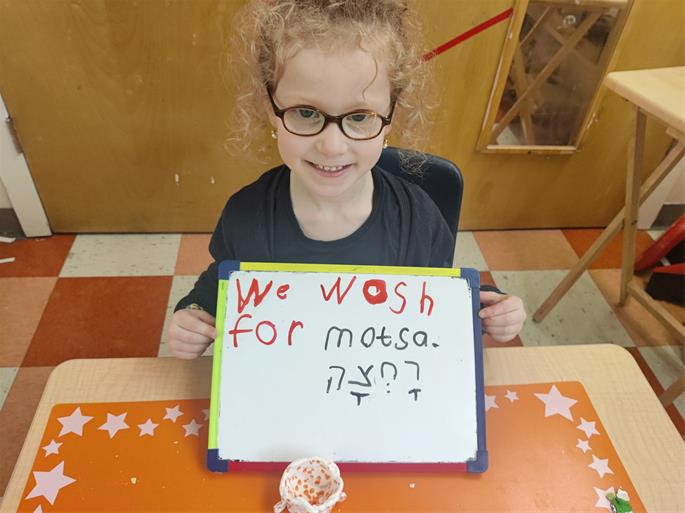
Junik, a third-generation Vermonter, understands well how difficult not having a local Jewish elementary school can be. Her parents, Rabbi Yitzchak and Zeesy Raskin, founded Chabad of Vermont in 1983, and Junik was born and raised in Burlington.
“I was homeschooled as a child because there was no Jewish school in Vermont,” she explained. But the story goes back even further, to her maternal grandfather, the late Shmuel Isaac Popack, who was born in Barre, Vt., in 1919, where his immigrant parents settled when his father found work there as a shochet and kosher butcher. As a young boy Shmuel Isaac’s parents would send him to Burlington—back then bustling with Jews and known as a “Little Jerusalem”—to study Torah in an afternoon Hebrew school. The elder Popacks eventually moved to New York precisely because of the lack of full-time Jewish education in the state.
A century later, that’s no longer the case.
“This is a new frontier for Jewish life in Vermont,” said Junik. “It’s something my great-grandparents could have only dreamed of, and now it’s happening.”
For Rabbi Avremi Zippel, program director at Chabad of Salt Lake City, the Tamim approach and the chance to create a Jewish day school came at a perfect time: the 2020 U.S. Census found Utah to be the fastest-growing state, and in late 2021, Chabad of Utah celebrated its 30th anniversary.
“Having the ability to be a part of the Tamim network and be on the receiving end of the invaluable resources they provide has been a vital factor in our ability to provide a Jewish elementary-school education to Salt Lake City’s community,” he said. “Simply put, without Tamim HQ, it would have been difficult to take this serious step on our own.”

Also, he continued, “with Chabad marking 30 years of its presence in Salt Lake City and with the population and needs of our community rapidly evolving, opening a Jewish day school was the perfect illustration of Chabad’s long-term commitment to our community. Having the ability to partner with Tamim was a match made in heaven.”
“We can open a new Tamim Academy anywhere in little time” said Holly Cohen, president and CEO of Tamim Academy. “Our model lends itself to scaling because the critical elements are built in at Tamim HQ and the particulars arise at the community level.”
This portends nothing short of a revolution in the world of Jewish education.
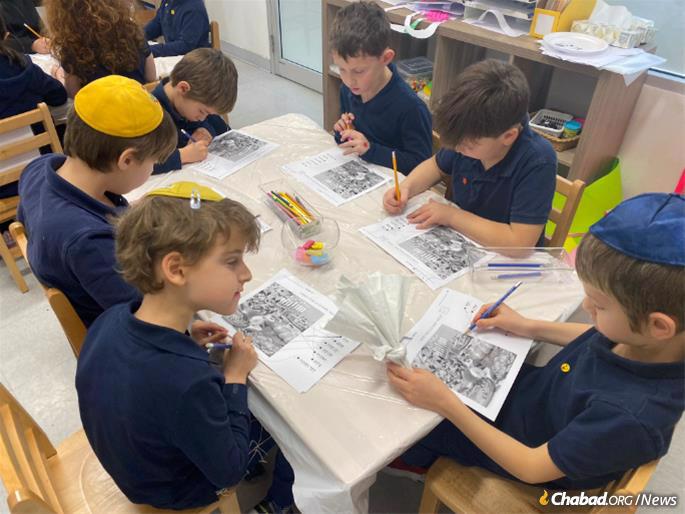
The Genesis
Authentic Jewish education isn’t just about providing an alternate “private-school option.” Rather, it’s primarily about empowering children with a real and personal relationship with G‑d, Who created them, loves them and knows each one of them has something unique to offer the world and make it a better place.
It is not coincidental then that numerous studies have confirmed that children who receive a Jewish education are much more likely to be active in Judaism as adults, something communal advocates have been saying for years. But according to the American Jewish Population Project, there are approximately 1.6 million Jewish children in the United States. Of these, only 292,000 are enrolled in Jewish day schools. More than 80% of American Jewish children—almost 1.3 million—are outside the day-school system.
“It’s their birthright,” said Cohen. “Our faith and tradition is so rich and touches on every aspect of our lives. It’s not just about rituals and rules. I want the next generation to know that there is a Jewish way to deal in business, treat our friends and our family, engage with strangers. Overall, it’s a Jew’s role to make the world a better place and to unleash the sparks of divinity in everything. These kids are entitled to know that they have been endowed with this responsibility and that they have the power to make it happen.”
Tamim was born out of Cohen’s 10 years as the executive director of the Kohelet Foundation, a private family foundation focused on improving Jewish day schools and increasing their enrollment. The foundation was visioned, guided and funded by the computer scientist and philanthropist David Magerman. Cohen says Magerman is a brilliant “systems guy” who was open to almost any project as long as it was smart, had the potential to make schools better and promote system efficiency. His ultimate ambition was a network of schools.

One of the Kohelet Foundation’s hallmark projects was the creation of the Kohelet Yeshiva Lab School. With the Lab School, the foundation intended to model an educationally progressive modern Orthodox elementary-school option in Lower Merion Township outside Philadelphia that might advance the field of Jewish education nationally. The program, said Cohen, was driven by the question “What do we know about how children learn?” rather than “What do we know about how schools have always operated?” Championed by Magerman and funded through the Kohelet Foundation, a team led by Cohen and Rabbi Dr. Gil Perl successfully launched the school in 2015. At that point, the question became whether there was a path to scale similar schools across the country.
“We’d worked with a number of Chabad emissaries at the foundation and the projects we did together were very successful,” explained Cohen. “We recognized Chabad’s success as a change agent of the Jewish world with broad appeal in both well-established Jewish communities and in ones that seem too small to sustain a Jewish day school of their own.”
Over the decades, Chabad has consistently served as a trend-setter in the Jewish world, reinvigorating whole segments of Jewish life. Whether it is broad outreach to the unaffiliated, creating a friendly synagogue experience, building warm Jewish homes on campus, fostering life and learning on the internet, food security in Israel, criminal justice reform in the United States or its ubiquitous and popular preschools, it sets standards eventually embraced and emulated by others.
Seeing the impact of Chabad’s network of preschools, which spans the continent, and knowing what Chabad has done time and again with other segments of Jewish life, Cohen considered how “they have completely reshaped early childhood Jewish education. We wondered how many parents would be willing to consider Jewish elementary schooling for their children if they could get academic rigor and the warmth of Chabad.”
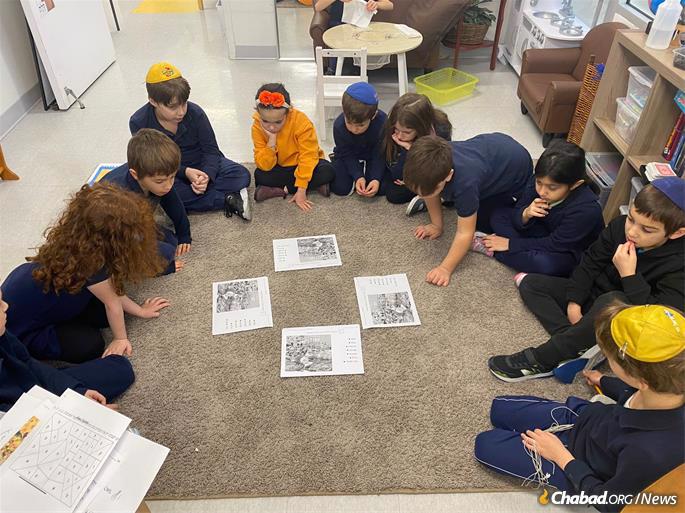
But for many Chabad emissaries, already stretched thin running a synagogue, mikvah, preschool, adult education and all the other services offered at a typical Chabad center, creating a full elementary school is simply a prohibitive task.
By December of 2019, the foundation completed a preplanned sunset and on January 1, 2020, Tamim Academy was born. Along with co-funder George Rohr, Magerman remains a vital supporter and board member of the new organization which is indeed building that network of schools.
Cohen started her career as an attorney almost 30 years ago. Coming to Lubavitch as an adult was “not the trajectory I imagined for myself,” she admits. “But I feel incredible awe and a tremendous sense of privilege to do this work.”
“Parents at our Torah Tots Early Childhood Center’s biggest complaint was always ‘Why don’t you continue Torah Tots? We want to stay on. We want to continue. Our kids love it. We love the philosophy,’” said Rivkah Denburg, director of Tamim Academy of Boca and co-founder, with her husband Rabbi Moishe Denburg, of Chabad of Boca Raton. “But I felt that starting a kindergarten, and then an elementary school, was not something I could do on my own.”
When the opportunity to join Tamim Academy’s pilot program came up, Denburg felt it was “bashert.” “I needed the curriculum support, the financial support and the guidance they have provided,” she explained. “It is essential for us and this has become an excellent partnership.”
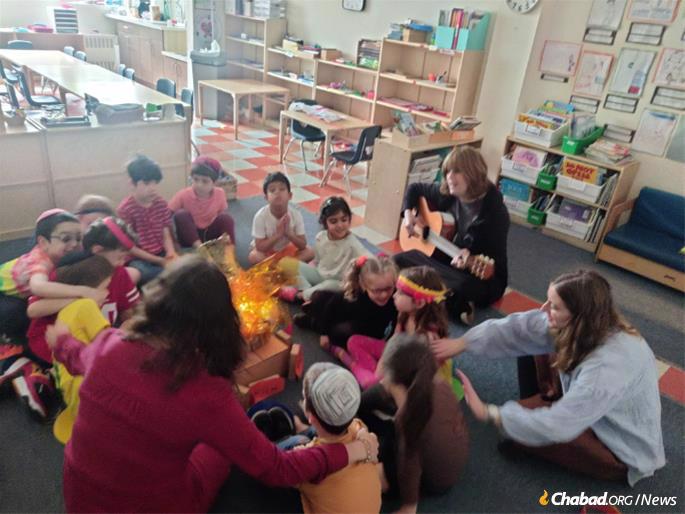
Chabad’s Long History of Educational Innovation
Education for all was among the most revolutionary aspects of the Chassidic movement when it was founded by Rabbi Yisrael Baal Shem Tov in the 18th century. The crucial role of education in the life of every Jew was further underscored by Rabbi Schneur Zalman of Liadi, the founder of Chabad-Lubavitch, who maintained that without an intellectual basis, spiritual growth would have neither depth nor integrity, and could not be perpetuated in the long term. Education has been a cornerstone of Chabad’s mission ever since.
Each successive Rebbe expanded upon his predecessor’s work with the primary mission of providing a Jewish education for all Jewish children.
Even as Jewish education became an increasingly dangerous field in the aftermath of the 1917 Bolshevik Revolution, the Sixth Rebbe, Rabbi Yosef Yitzchak Schneersohn, of righteous memory, continued to focus his work on providing a Jewish education for children everywhere from the cities of Russia to the villages of the Caucasus. For this work Rabbi Yosef Yitzchak was arrested in 1927 and sentenced to death, with Soviet authorities eventually expelling him instead. He continued his work from the other side of the Iron Curtain. When Rabbi Yosef Yitzchak arrived in New York from Nazi-occupied Europe in 1940, his first task was Jewish education and he opened a yeshiva.

The next year he started Merkos L’Inyonei Chinuch, the educational arm of the Chabad movement, placing his son-in-law, the future Rebbe, at its helm. Merkos was the first Jewish educational organization of its kind, establishing dozens of Jewish day schools as public school alternatives in cities around the country, and creating programming, curricula, textbooks and children’s publications in multiple languages. It was also instrumental in opening dozens of local Jewish day schools that were not formally affiliated with Chabad, in line with its underlying goal to “promote Jewish-religious education in all sections of Jewry,” as a 1948 brochure makes clear, “without any distinction whatsoever, so as to bring up a new generation of Jewish children … .”
The Rebbe further expanded on this in 1976, when he elevated the urgency of educating every Jewish child to a directive in what ultimately became one of the 10 Mitzvah Campaigns. For his Education Campaign, the Rebbe emphasized the importance of reaching every Jewish child, empowering children to teach their fellow children, and that the concept of education does not end with children.
He also encouraged the opening of new schools and educational facilities for Jewish children from all backgrounds. At the time the Rebbe reiterated that these new schools, as well as existing ones, provide scholarships when necessary so that no Jewish child would find themselves without access to quality Jewish education.

In 1983 the Rebbe again emphasized at Purim gathering the need for a “special effort” to expand the reach of Jewish education: “We cannot content ourselves with working to insure that those children already enrolled in Jewish schools receive a proper education, but rather efforts must be made to reach out to those children who at present are not receiving any Torah education,” said the Rebbe.
Tamim likewise caters to precisely those Jewish children from any and all backgrounds. While it comes to the table with a unique educational and organizational model, it is ultimately a modern evolution of this same centuries-old mandate to place primary effort on the education of Jewish children.

Education That Engages the Entire Family
When a Chabad emissary couple arrives in a city or town, one of the first requests they regularly receive is from young Jewish families asking that they open a Jewish preschool. The school’s warm Jewish setting is often the foundation that leads entire families to embark on a fulfilling Jewish journey. Today, there are hundreds of Chabad preschools around the world.
That's precisely what happened seven years ago, with Chabad House at Harvard. At the behest of a number of graduate students and young alumni who stayed on in the Boston area after graduating, some of whom had been involved with Harvard Chabad since their undergraduate years, Chabad started a small preschool. Today, Cambridge Preschool of the Arts (POTA) operates in four locations throughout the city of Cambridge with 215 full time students. "That our grad students and alums were seeking a Jewish education for their children, and yet, were not successful in finding an early childhood program that met their standards, inspired and compelled us to create a school with the highest quality of excellence," says Elkie Zarchi, co-founder of Harvard Chabad. She wasn't surprised that "elementary school was the next step and one we were happy to take with Tamim Academy. Whether we're educating 3, 6 or 20 year olds, ensuring that our next generation of Jews have a deep knowledge of who they are and what they can accomplish in the world is why we're here."
While the highly curated curriculum, professional development and centralized back office may be what appeals to educators and emissaries, it is the innovative whole-child approach that most excites parents.

Abbey and Adam Soclof chose Tamim NYC, on Manhattan’s Upper West side, for their seven year old daughter who is in first grade. Regarding the atmosphere in the school Adam says, “the thing we love about Tamim is that they know and love the kids so much and that is something that you feel as a parent." Abbey adds, “it just feels like they have honed in on who she is and they are helping her bring out the best in herself academically, socially, Jewishly," which is the precise goal of Tamim’s whole-child educational model.
Debby Kagan, a member of the Chabad of Boca community, values Jewish education. When it came time to pick a school for her youngest child, Sara, 8, she chose Tamim Academy.
“Torah Tots is an incredible preschool and when the kids go off to a big elementary school, it’s a whole different world and a big transition. For any family that wants to stay in the Chabad environment and wants a progressive education. Tamim Academy is the perfect solution.”
As for the Maza family of Vermont, the school has been the answer to a prayer. “I don’t know what we would have done if we hadn’t come across Tamim,” said Robin Maza. “We probably would have had to go with the flow and put our child in a school we weren’t interested in, academically or otherwise.
“We feel this is a blessing, and we are proud to be part of something in humble beginnings and make it more successful and help it grow.”
“I hope Tamim Academy is yet another expansion of the Rebbe’s mandate to open new schools for Jewish children from all backgrounds,” says Cohen. “We believe we have a proof of concept and we’re ready to scale. No limits.”
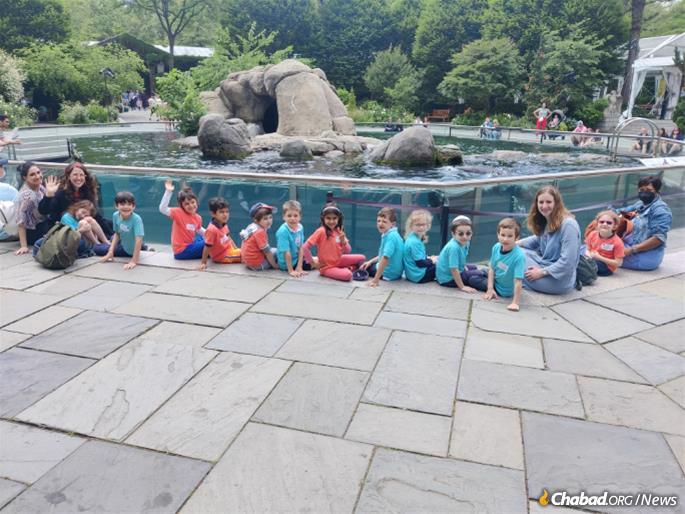
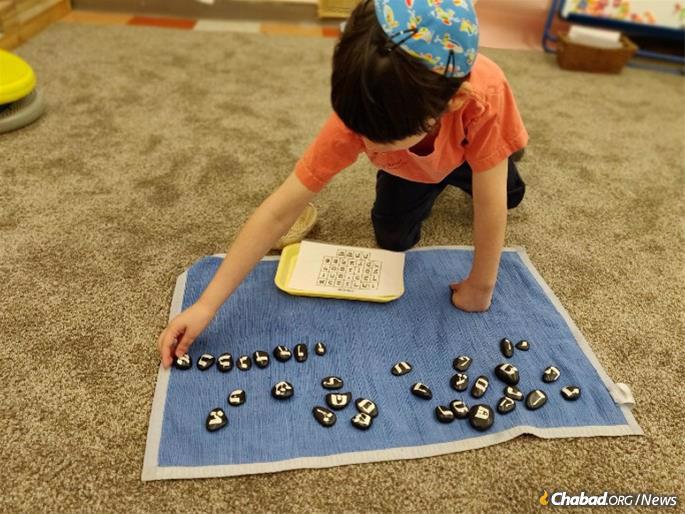
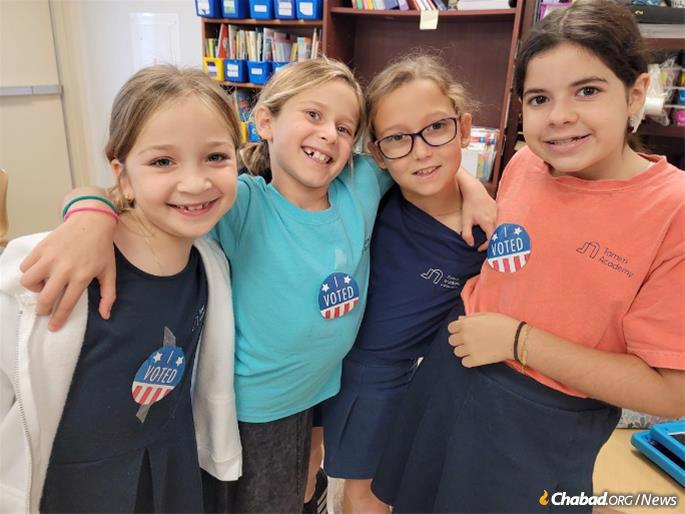

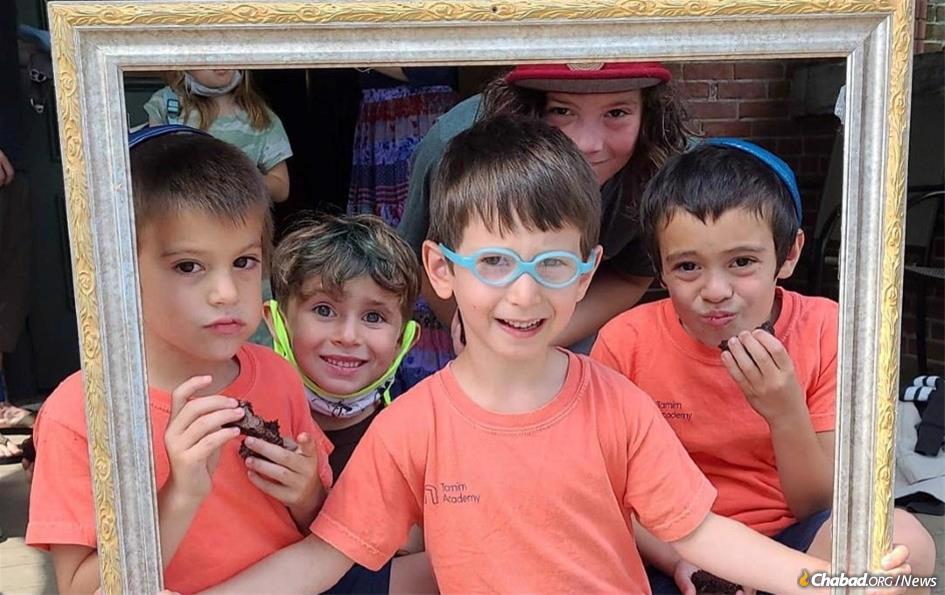






Join the Discussion